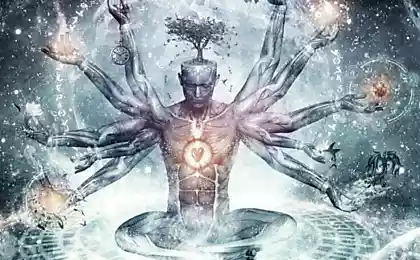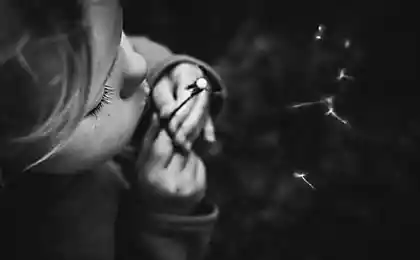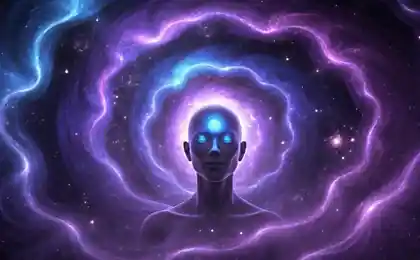696
Adam Phillips: Consciousness part of our mind that makes us this mind to lose
Self-criticism is often accompanied by anger and loathing, does not offer solutions and simplifies our view of the world.
But people have learned to enjoy every portion of the self-dissatisfaction, — writes the British psychoanalyst Adam Phillips's essay "Against criticism".
Published its essence.
Forty four million one thousand six
According to Phillips, masochistic need for self-criticism emerges from this ambivalence, which is crucial in our lives. He recalls the legacy of Freud:
"In the view of Freud, we first of all dual animals in love, while hate and hate to love. If someone can we meet, he might disappoint. We criticize when you're upset, and praise when happy and Vice versa. The ambivalence of Freud does not imply a mixing of the senses, it means the opposite of feelings.
Love and hate — these simple and familiar words, which, however, always mean a little something that we would like to say — this is a common source, a basic sense through which we perceive the world. They are interdependent — one cannot exist without the other, they explain each other. How we hate, is determined by how we love, and Vice versa. And these feelings are present in all that we do, they handle everything.
According to Freud, we are ambivalent around what you're dealing; with this ambivalence, we understand that someone or something became really important to us. Where there is strong attachment, there is disagreement; where there is trust, there is suspicion".
It is impossible to imagine a life in which most of the time we spend criticizing yourself and others. But we are so well aware of the principle of self-criticism that inertia is suspicious of possible alternatives.
Thirty nine million nine hundred sixty eight thousand nine hundred twenty one
Phillips writes:
"Self-criticism, I myself as a critic himself, the essence of our ideas about ourselves. Nothing makes us more critical, more confused, more suspicious, or more shocked than the idea that we must destroy this ruthless criticism. But we need at least less to appreciate it. Or, eventually, to overcome it".
This samokritika in the us is completely devoid of imagination, says Phillips. This is a ruthless Prosecutor with a huge repertoire of rants, which to the casual observer they look funny and tragic at the same time.
"If we met this internal of the Prosecutor in society, we have decided that with it something not so. It was just a bored and angry. We would have thought that with him, it must have been something terrible that he survived the crash. And we'd be right".
Freud called the inner critic, superego. Phillips believes that we suffer from Stockholm syndrome this superego:
"We are constantly, though unconsciously, transform your character. This inner cruelty so persistent that we don't even know what would be without it. In fact, we know nothing about ourselves, because judged themselves before have the opportunity to see themselves. Or judged only according to ability to judge. What is impossible to obtain judgment, cannot be seen.
What happens to all that you can't approve or disapprove, with all the things to judge that we were not taught? The judge himself may judge, but cannot know. We think that it's hard not to resist something can not be overcome. This is part of the domestic tyranny — a small but loudly proclaims itself."
Tyranny of superego, explains Phillips, is derived from its tendency to reduce the difficult arranged consciousness to a single, limited interpretation and present it as a living reality. But we agree with the interpretation given to us, the superego, we believe that this view is true.
"To understand what matter — dreams, neurotic symptoms, literature, is possible only as a result of hyperinterpolation, seeing them from different points of view as the result of many pulses. Hyperinterpolation in this case is not confined to one interpretation, no matter how interesting it may be. Moreover, we can say — and this is the starting premise for Freud, or the ambivalence of psychoanalysis, that the more persuasive and credible multilateral is the interpretation, the less credibility it deserves. Interpretation can be a cruel attempt to distinguish where to draw borders is impossible."
Phillips offers a complete rejection of interpretation, as "psychological hygiene" — the involvement of multiple interpretations, which can be contrasted to the artificial authority of the superego.
It shows the cowardice of self-criticism on the example of hamlet, that "genius of self-examination»:
"In the first quarto of "hamlet" said: "So consciousness makes us all cowards." In the second quarto reads: "the Mind creates cowards." If consciousness makes cowards of us all, we are in the same boat, the way it is. If consciousness just creates cowards, we can wonder what else it could do. Consciousness creates us, it is the Creator, if not himself, then all that surrounds it. It is an eternal artist... superego... thinks we defined characters: it tells us who we really are. It pretends to know us as no one, including ourselves. And it is the omniscient: acting like she can predict the future, though he knows the circumstances of our actions".
Phillips brings us to the conversation about oppressive standards of the superego:
"Superego is the sole interpreter... It tells us that we must believe the truth about yourself. Self-criticism, thus, is a permissible pleasure. It seems that we get pleasure from how it makes us suffer, and we take it for granted that each day brings a vital portion of dissatisfaction. Every day we fail to be as good as we could be."
Surrendering into the hands of self-criticism, warns Phillips, our consciousness he behaves like a coward:
"Consciousness is part of our mind that makes us this mind to lose. It's a moralist, preventing us to use their own, more complex and subtle morals, and in the course of the experiment to find out what the limits of our existence. Consciousness makes cowards of us all, because it is itself cowardly. We believe in it, we identify ourselves with our condemning and prohibiting part, but this domineering part itself turns out to be a coward."
Phillips writes:
"How is it that we so fascinated by self-hatred, trusting to self-criticism, so forthright? And why it looks like a court without a jury? Jury still represent a consensus as an alternative to autocracy…
We need to distinguish between the beneficial a sense of responsibility for their actions and tricks of contempt for ourselves... It doesn't mean that no one ever deserves censure. This means that wine is always way more complicated than it seems, she's always outside interpretations... self-Criticism, if she's not helping in matters of self-correction is self-hypnosis. This trial is a curse, but not a discussion, that's an order, not a negotiation, it is dogma, and not a reimagining".
Our self-criticism, of course, cannot be uprooted, and shall not, because for us it is the most effective means of navigation in life.
But if you cultivate the ability to multiple interpretations, then, says Phillips, self-criticism will become "less boring and less exhausting, more creative and less vicious". published
Prepared By: Eloise Shevchenko
P. S. And remember, just changing your mind — together we change the world! ©
Source: //theoryandpractice.ru/posts/15452-kritika-samokritiki-kak-pobedit-besposhchadnogo-vnutrennego-tirana
But people have learned to enjoy every portion of the self-dissatisfaction, — writes the British psychoanalyst Adam Phillips's essay "Against criticism".
Published its essence.
Forty four million one thousand six
According to Phillips, masochistic need for self-criticism emerges from this ambivalence, which is crucial in our lives. He recalls the legacy of Freud:
"In the view of Freud, we first of all dual animals in love, while hate and hate to love. If someone can we meet, he might disappoint. We criticize when you're upset, and praise when happy and Vice versa. The ambivalence of Freud does not imply a mixing of the senses, it means the opposite of feelings.
Love and hate — these simple and familiar words, which, however, always mean a little something that we would like to say — this is a common source, a basic sense through which we perceive the world. They are interdependent — one cannot exist without the other, they explain each other. How we hate, is determined by how we love, and Vice versa. And these feelings are present in all that we do, they handle everything.
According to Freud, we are ambivalent around what you're dealing; with this ambivalence, we understand that someone or something became really important to us. Where there is strong attachment, there is disagreement; where there is trust, there is suspicion".
It is impossible to imagine a life in which most of the time we spend criticizing yourself and others. But we are so well aware of the principle of self-criticism that inertia is suspicious of possible alternatives.
Thirty nine million nine hundred sixty eight thousand nine hundred twenty one
Phillips writes:
"Self-criticism, I myself as a critic himself, the essence of our ideas about ourselves. Nothing makes us more critical, more confused, more suspicious, or more shocked than the idea that we must destroy this ruthless criticism. But we need at least less to appreciate it. Or, eventually, to overcome it".
This samokritika in the us is completely devoid of imagination, says Phillips. This is a ruthless Prosecutor with a huge repertoire of rants, which to the casual observer they look funny and tragic at the same time.
"If we met this internal of the Prosecutor in society, we have decided that with it something not so. It was just a bored and angry. We would have thought that with him, it must have been something terrible that he survived the crash. And we'd be right".
Freud called the inner critic, superego. Phillips believes that we suffer from Stockholm syndrome this superego:
"We are constantly, though unconsciously, transform your character. This inner cruelty so persistent that we don't even know what would be without it. In fact, we know nothing about ourselves, because judged themselves before have the opportunity to see themselves. Or judged only according to ability to judge. What is impossible to obtain judgment, cannot be seen.
What happens to all that you can't approve or disapprove, with all the things to judge that we were not taught? The judge himself may judge, but cannot know. We think that it's hard not to resist something can not be overcome. This is part of the domestic tyranny — a small but loudly proclaims itself."
Tyranny of superego, explains Phillips, is derived from its tendency to reduce the difficult arranged consciousness to a single, limited interpretation and present it as a living reality. But we agree with the interpretation given to us, the superego, we believe that this view is true.
"To understand what matter — dreams, neurotic symptoms, literature, is possible only as a result of hyperinterpolation, seeing them from different points of view as the result of many pulses. Hyperinterpolation in this case is not confined to one interpretation, no matter how interesting it may be. Moreover, we can say — and this is the starting premise for Freud, or the ambivalence of psychoanalysis, that the more persuasive and credible multilateral is the interpretation, the less credibility it deserves. Interpretation can be a cruel attempt to distinguish where to draw borders is impossible."
Phillips offers a complete rejection of interpretation, as "psychological hygiene" — the involvement of multiple interpretations, which can be contrasted to the artificial authority of the superego.
It shows the cowardice of self-criticism on the example of hamlet, that "genius of self-examination»:
"In the first quarto of "hamlet" said: "So consciousness makes us all cowards." In the second quarto reads: "the Mind creates cowards." If consciousness makes cowards of us all, we are in the same boat, the way it is. If consciousness just creates cowards, we can wonder what else it could do. Consciousness creates us, it is the Creator, if not himself, then all that surrounds it. It is an eternal artist... superego... thinks we defined characters: it tells us who we really are. It pretends to know us as no one, including ourselves. And it is the omniscient: acting like she can predict the future, though he knows the circumstances of our actions".
Phillips brings us to the conversation about oppressive standards of the superego:
"Superego is the sole interpreter... It tells us that we must believe the truth about yourself. Self-criticism, thus, is a permissible pleasure. It seems that we get pleasure from how it makes us suffer, and we take it for granted that each day brings a vital portion of dissatisfaction. Every day we fail to be as good as we could be."
Surrendering into the hands of self-criticism, warns Phillips, our consciousness he behaves like a coward:
"Consciousness is part of our mind that makes us this mind to lose. It's a moralist, preventing us to use their own, more complex and subtle morals, and in the course of the experiment to find out what the limits of our existence. Consciousness makes cowards of us all, because it is itself cowardly. We believe in it, we identify ourselves with our condemning and prohibiting part, but this domineering part itself turns out to be a coward."
Phillips writes:
"How is it that we so fascinated by self-hatred, trusting to self-criticism, so forthright? And why it looks like a court without a jury? Jury still represent a consensus as an alternative to autocracy…
We need to distinguish between the beneficial a sense of responsibility for their actions and tricks of contempt for ourselves... It doesn't mean that no one ever deserves censure. This means that wine is always way more complicated than it seems, she's always outside interpretations... self-Criticism, if she's not helping in matters of self-correction is self-hypnosis. This trial is a curse, but not a discussion, that's an order, not a negotiation, it is dogma, and not a reimagining".
Our self-criticism, of course, cannot be uprooted, and shall not, because for us it is the most effective means of navigation in life.
But if you cultivate the ability to multiple interpretations, then, says Phillips, self-criticism will become "less boring and less exhausting, more creative and less vicious". published
Prepared By: Eloise Shevchenko
P. S. And remember, just changing your mind — together we change the world! ©
Source: //theoryandpractice.ru/posts/15452-kritika-samokritiki-kak-pobedit-besposhchadnogo-vnutrennego-tirana























